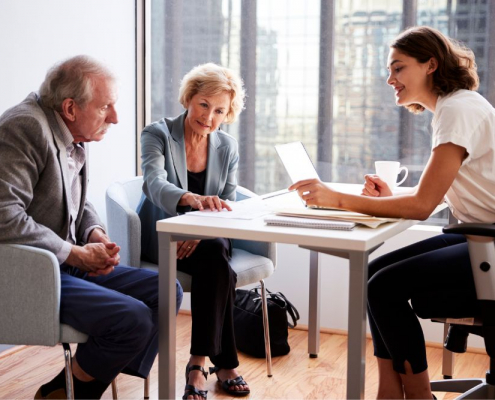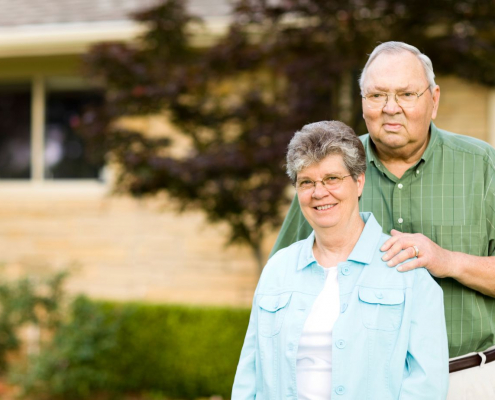According to the Centers for Disease Control and Prevention, an adult 65 years old or older suffers a fall every second of every day in the United States. This is the leading cause of injury and death for individuals in this age group. Additionally, one in every four elderly people will fall every year.
When an older adult falls, severe injuries are likely, such as traumatic brain injury, a fractured hip, and other broken bones. Sometimes, the fall is fatal, due to medical complications that lead to eventual death. Although falls are preventable accidents, they often occur when someone depends on others to care for them.
Nursing homes are common locations of serious falls among dependent adults. Neglect often leads to falls when a nurse or another caregiver doesn’t provide the assistance their patient needs. They might leave a resident unattended for hours or ignore a request for help walking to the bathroom.
Factors Contributing to Falls
Unfortunately, older adults are susceptible to falling. As people age, their muscles weaken, bones become brittle, and balance and coordination abilities decline. The most common factors that cause an elderly person to fall include:
- Poor vision – Aging eyes prevent a person from noticing trip hazards and other obstacles ahead.
- Gait and balance issues – Trouble with balance, flexibility, and coordination become problems due to an older adult’s lack of physical activity.
- Living environment – Many dependent adults don’t make the necessary modifications to their homes for easy and safe accessibility. For example, a disabled individual without handrails or a ramp in their home is likely to suffer a fall.
- Medications – Certain over-the-counter and prescription drugs can cause dehydration, dizziness, and other side effects, leading to falls.
- Chronic conditions – Chronic conditions, such as arthritis, diabetes, or stroke, increase falling risk. Typically, the fall will be due to inactivity, pain, loss of motor skills, depression, and other issues these conditions cause.
How to Reduce the Risk of a Fall
Below are some ways you could prevent or mitigate the risk of your loved one falling:
You should talk to your loved one about your concerns for their well-being. Ask if they worry about falling, too. You can create a plan to ensure they remain physically active while reducing the risk of a fall.
Inform them of common trip hazards they should avoid having in their home or their room, such as loose electrical cords, unsecured floor mats, and hallway obstructions. Tell them to see their doctor for a proper diagnosis if they experience dizziness, balance issues, or other medical problems indicating a cognitive or physical illness.
If they live at home, visit them for a thorough walk-through of each room. Determine where fall hazards exist and make necessary modifications. For example, if it’s challenging for them to walk up and down the stairs, suggest having a motorized chair installed to safely get them to each floor.
- Ask About their Health Issues
Your loved one might suffer from various medical issues, increasing the chance of a fall in the future. Talk about these diagnoses and try to determine the right solution to manage their symptoms so they can avoid falling. They might need to go on medication, use a walker, or move into a nursing home for daily assistance.
- Bring Them to the Eye Doctor
Failing vision is common as people get older. Ask your loved one about the last time they went to the eye doctor for a routine exam. If it’s been a while or they’re due for another one, take them to an appointment.
Talk about your concerns with the physician and ask for suggestions regarding the vision problems. It might be time to update your family member’s prescription or purchase contact lenses or glasses so they can see where they’re going much better.
Contact Us
Planning for the care of an older loved one can be overwhelming and difficult. Please know that our San Jose elder law attorneys are here to guide you through all of your options to help keep your loved one healthy and safe. If you have questions or need assistance, contact our law firm at (800) 244-8814 to schedule a consultation.
 https://www.copenbarger.com/wp-content/uploads/2024/07/upstream-planning.jpg
667
1000
Valerie Guerrero
https://www.copenbarger.com/wp-content/uploads/2019/07/copenbarger-attorney-logo.jpg
Valerie Guerrero2024-07-23 08:14:162024-07-23 08:14:16Upstream Planning – Orange County Tax Lawyer
https://www.copenbarger.com/wp-content/uploads/2024/07/upstream-planning.jpg
667
1000
Valerie Guerrero
https://www.copenbarger.com/wp-content/uploads/2019/07/copenbarger-attorney-logo.jpg
Valerie Guerrero2024-07-23 08:14:162024-07-23 08:14:16Upstream Planning – Orange County Tax Lawyer



